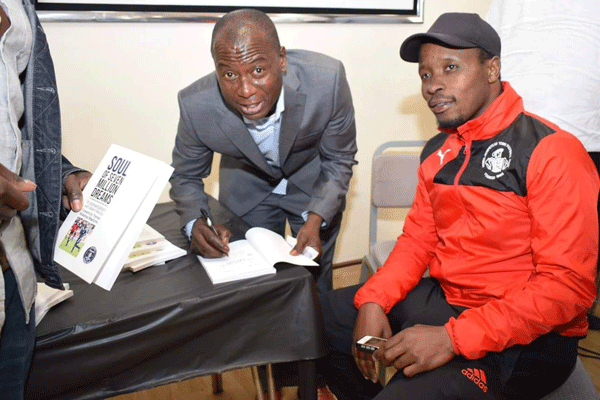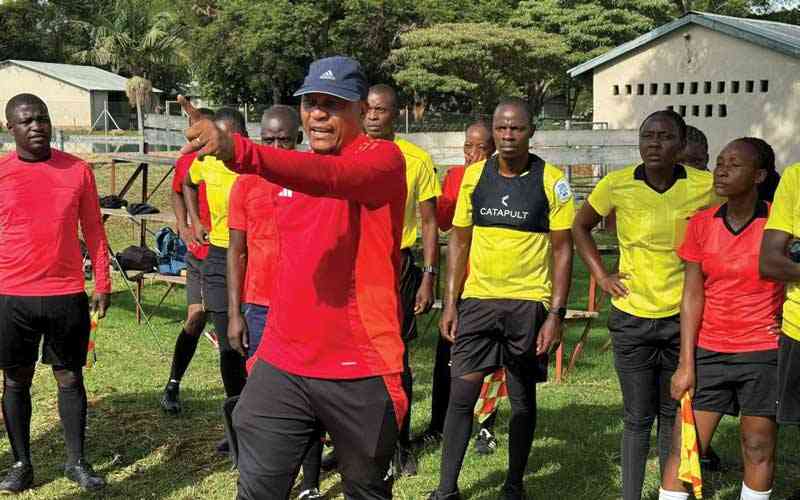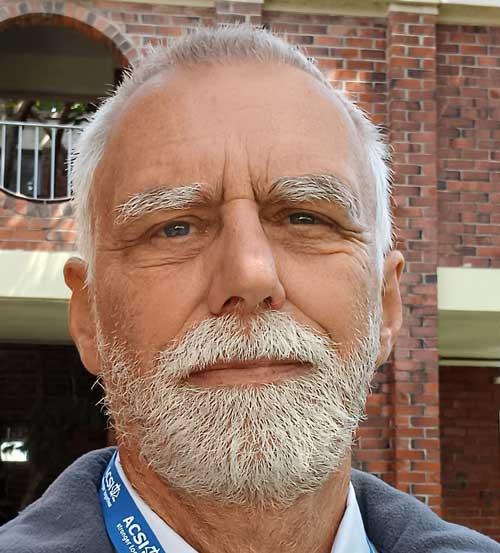
HE looked destined to follow in the footsteps of many a local footballer, whose exploits on the field of play were quickly forgotten the moment they hung up their boots.
BY DANIEL NHAKANISO

After relocating to the United Kingdom soon after his retirement in 2001, Memory Mucherahowa — the legendary former Dynamos captain — looked set to become the next victim of a sporting discipline that is very quick to forget its heroes the moment they call time on their careers.
But the release of his explosive autobiography titled Soul of Seven Million Dreams, authored by former Standard sports journalist Albert Marufu, not only ensured that this legend will be remembered for a long time to come, but also thrust him firmly back into the limelight.
Given the rarity of autobiographies from former or current African sports personalities, Mucherahowa’s brutally honest book is somewhat a rare gem in continental football.
His decision to lift the lid on controversial issues such as the widespread use of juju at the Harare giants, drug abuse amongst footballers of his time and the contentious issue of the club’s ownership structure, make his book a good read.
For decades, players, staff and clubs have all denied using juju to bring success in matches, but Mucherahowa goes into detail, describing an incident in which a witchdoctor slit the players’ toes in order to administer his “medicine” and asked the team to play through the pain.
And it’s no wonder Mucherahowa has been hogging the limelight since the release of his explosive autobiography which has received extensive coverage from some of the world leading media organisations such as BBC.
- Chamisa under fire over US$120K donation
- Mavhunga puts DeMbare into Chibuku quarterfinals
- Pension funds bet on Cabora Bassa oilfields
- Councils defy govt fire tender directive
Keep Reading
The BBC last week ran an extensive article on Mucherahowa’s revelations about the widespread use of juju to win games by local teams, including his former side Dynamos, who he captained for eight years until his retirement.
The 49-year-old football legend, who led Dynamos to the 1998 African Champions League final, was also invited to the BBC studios in London for an exclusive television interview which will be aired next week, something which he never managed to do during his playing career.
The man nicknamed “Mwendamberi” during his playing days, admitted that he was also amazed by the high interest in the book.
“We’ve been trying to spread the word about the book as much as possible and yesterday [Wednesday] I went to BBC TV for an interview,” he said.
“I wasn’t sure how it would be received since not many former footballers have written autobiographies, but I must say the response has been massive and I didn’t expect that sort of response to be honest.
“I have been receiving calls and massages from people from around the world, some as far as the United States wanting to know how they can get the book.”
However, one thing is obvious, while Mucherahowa’s autobiography has earned him back his fame, its brutal honesty hasn’t gone down well with some of his former teammates and colleagues.
The former star revealed that he has received threats on his social media accounts some people who are not happy with some of his comments in the book.
“As you know, some people are not happy as well and they have been sending me all sorts of threats in my inbox using Facebook accounts,” he said.
“However, I’m not moved at all because I was ready for it when I published the book and I knew it would happen.”
The recent threats come after Mucherahowa defended his decision to bare his soul in his book, which could have opened old wounds with former teammates and colleagues.
“Worried? Hell no! I’m not and if they feel I was hard on them, then that’s life. Maybe one or two should write their own books and counter mine,” he said.
“I think I was honest from the first day they started knowing me. But anyway, I’m sorry if I hurt somebody but as far as I’m concerned I said the truth.”
Mucherahowa also had a stint with the Zimbabwe senior national team.











